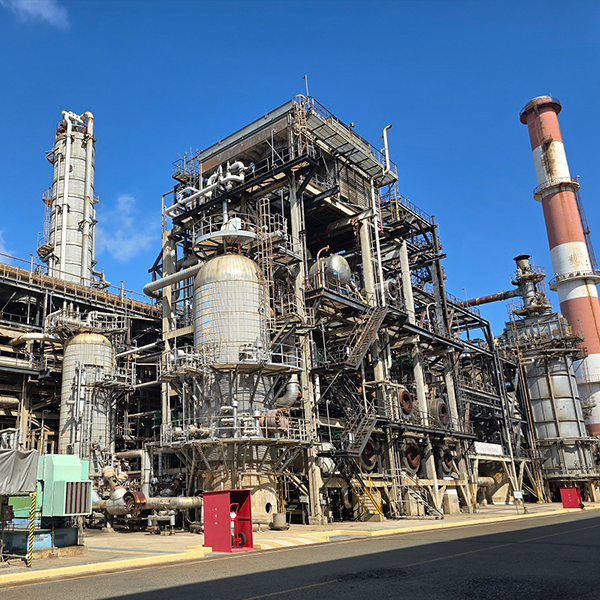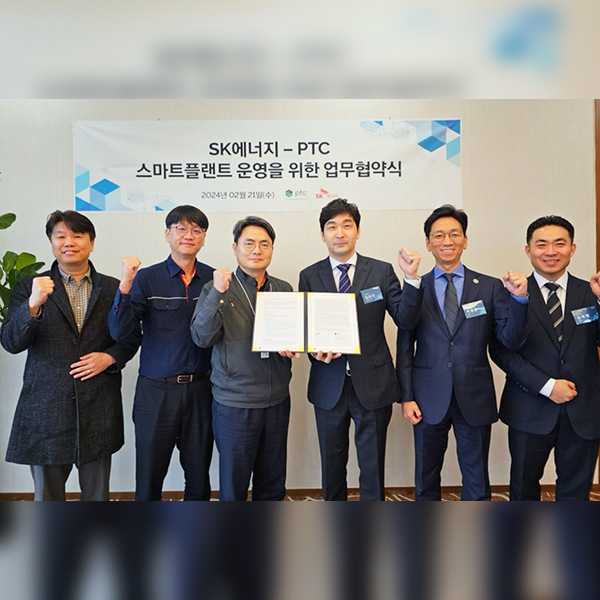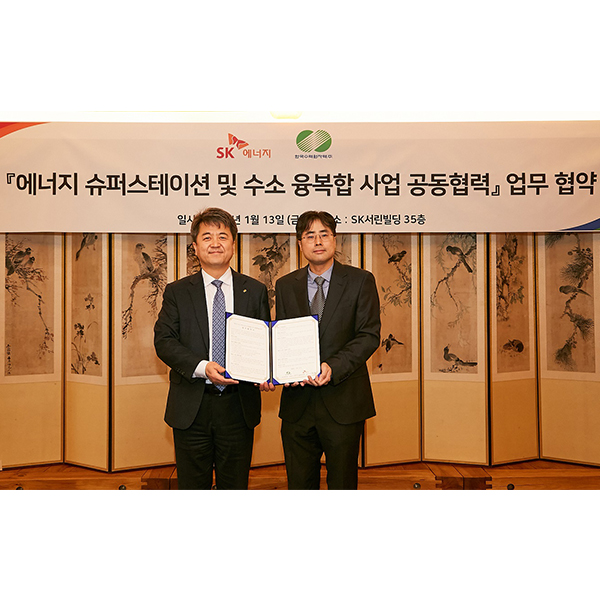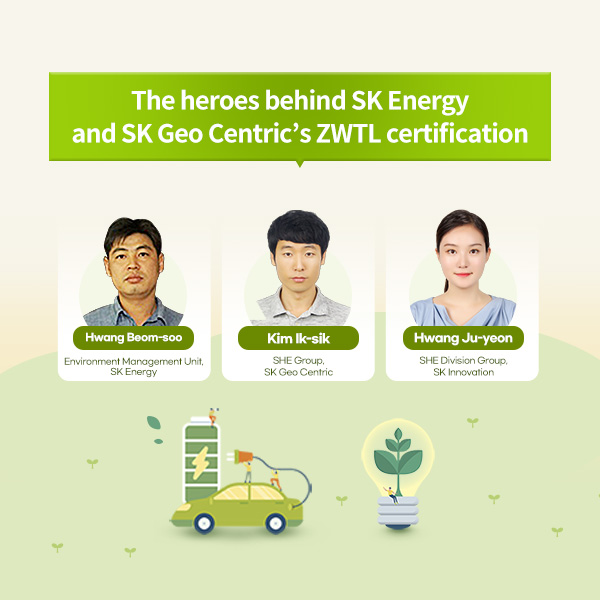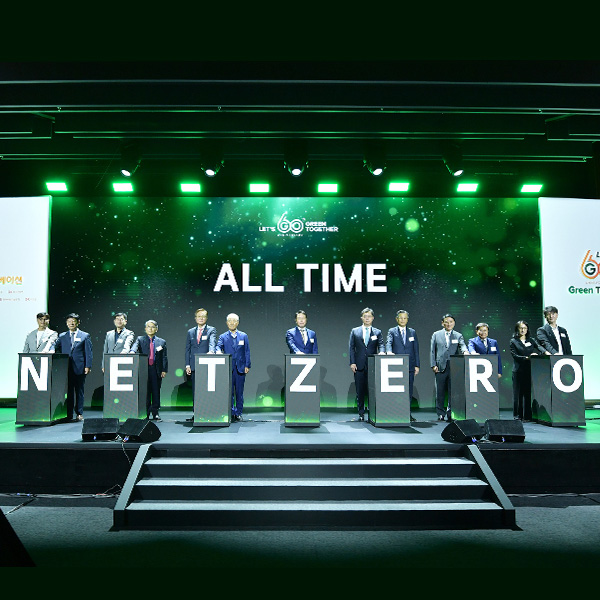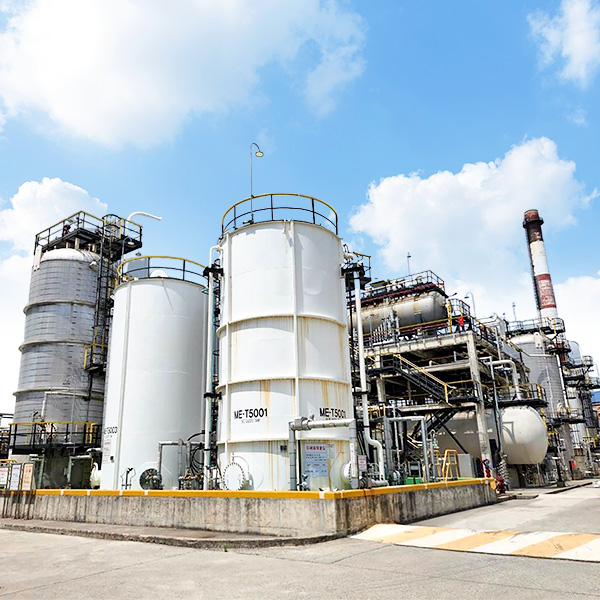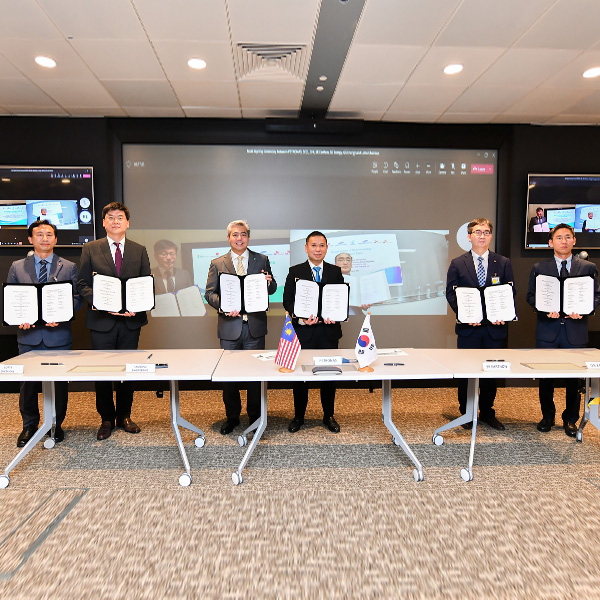 SK Energy
SK Energy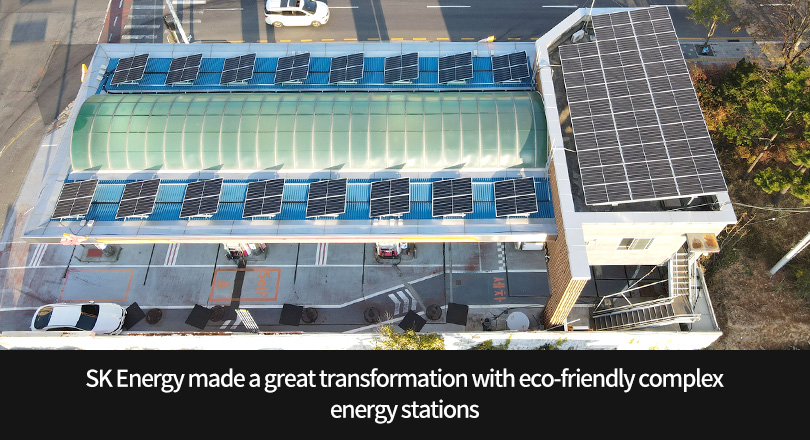
SK Energy, a subsidiary of SK Innovation, is speeding up its ESG management for the future through business expansion of infrastructures such as gas stations, charging stations, and Netruck House.
| Building energy platform equipped with electric/hydrogen vehicles infrastructure
Due to the explosive growth of EV battery market recently, the industry predicts that SK Innovation will accelerate even more in building electric vehicle/hydrogen vehicle charging infrastructure.
As of last year’s end, SK Energy is operating 37 EV charging stations with 40 chargers as of the end of 2020. To meet the demand of EV users, the company is considering adding more charging stations. The EV charging stations at SK headquarters’ office building, Yangpyeong, and Yeongjongdo Skypark, etc. are equipped with 100kW super-fast chargers that can power up a variety of EVs.
SK Energy’s charging station is deeply changing into a gas station that serves as an eco-friendly energy platform that deviates from the existing business framework by installing hydrogen chargers and photovoltaic generation facilities and electric vehicle charging facilities.
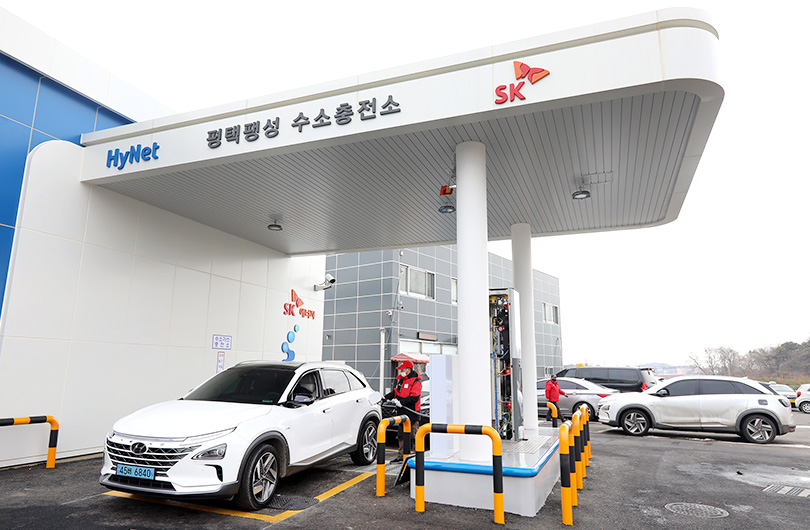
▲ SK Energy started operating the first hydrogen charging station inside the LPG charging station site located in Pyeongtaek, Gyeonggi Province, South Korea in January this year.
In January this year, SK Energy’s first hydrogen charging station opened in Pyeongtaek. This station was built at the site of SK Energy’s gas station and LPG refueling station. SK Energy is in charge of operating it, while Hinet is responsible for construction and supplying hydrogen.
Meanwhile, SK announced its plant to intensively nurture hydrogen business as the next-generation energy by launching the “Hydrogen Business Promotion Team” in December 2020. SK Innovation will be in charge of one of SK Group’s hydrogen businesses by utilizing the company’s petrochemical process and infrastructure such as gas stations.
Another subsidiary of SK Innovation, SK Incheon Petrochemical is expected to be in charge of supplying by-product hydrogen(1). By placing the business site in the metropolitan area, where the demand for hydrogen energy is the highest, it is said to be an optimal location to efficiently solve the transport cost problem. SK Energy plans to supply hydrogen energy for vehicles by utilizing gas stations and NeTruck House(2) as green energy service hubs while actively developing demand for power generation, such as fuel cell power plants.
(1) By-product hydrogen: Hydrogen is additionally produced during the production process at production facilities such as petroleum/chemical plants. In the meantime, due to difficulties in production and distribution, by-product Hydrogen were discarded without being recycled in many cases.
(2) NeTruck House: SK Energy’s “one-stop service” to enhance the truck drivers’ welfare. Currently there are 22 points of NeTruck House in South Korea, and the number is expected to increase to 40 points by 2030.
| The transformation of gas station and Netruck House into eco-friendly complex energy station
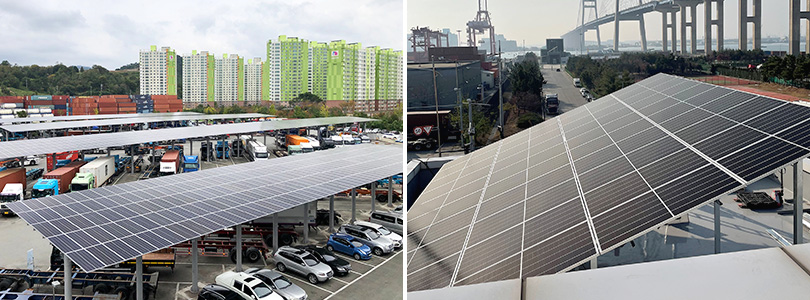
▲ (Left) Photovoltaic plant installed at SK Energy Netruck House in Busan New Port Office, South Korea / (right) Photovoltaic plant installed at SK Energy Netruck House in Pyeongtaek Office, South Korea
Netruck House, the business launched by SK Energy in 2006, is transforming into eco-friendly gas station. At present, photovoltaic power generation facilities with total capacity of 1592 ㎾ are operating at three NeTruck House sites, including Busan New Port, Okcheon, and Pyeongtaek. SK Energy is planning to expand these facilities at all NeTruck House’ sites in the future.
SK Energy installed photovoltaic generation facilities on the rooftop and canopy of SK Energy’s gas stations. The photovoltaic generation is currently in commercial operation at 13 locations in Seoul, Gyeonggi, and Daegu. Compared to coal/thermal power, photovoltaic generation can reduce greenhouse gas and fine dust, preventing environmental pollution
As such, SK Energy is innovating its gas stations and Netruck House, which have formed a nationwide network, as shared infrastructure to become eco-friendly complex energy stations that encompasses renewable energy such as photovoltaic generation, EV, LPG charging, hydrogen production and charging.
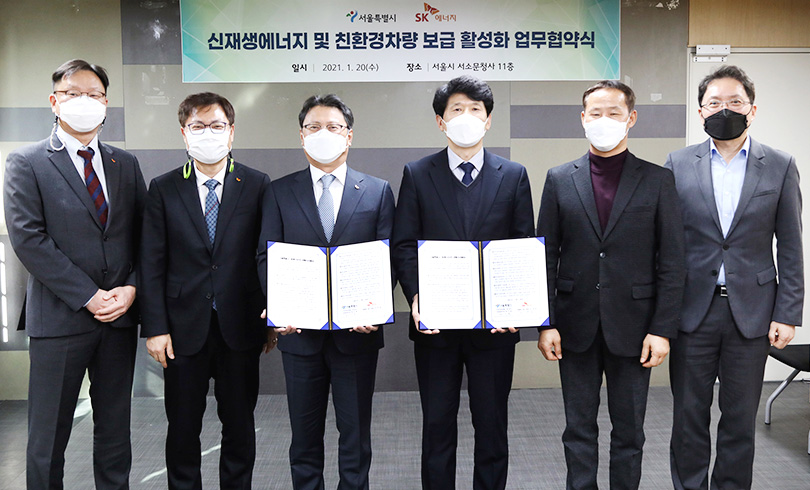
▲ On January 20th, SK Energy and the Seoul Metropolitan Government signed a business agreement for “Expanding the Supply of Renewable Energy and Eco-friendly Vehicles” at Seoul City Hall.
In addition, earlier this year, SK Energy signed a business agreement with Seoul Metropolitan Government to expand the supply of new and renewable energy and to build eco-friendly vehicle infrastructure to achieve carbon neutrality in 2050. Both sides found the necessity to change the energy in response to climate change crisis. The agreement aimed to maximize the social values created by installing photovoltaic generation facilities and EV charging facilities at SK gas stations and charging stations.










 Youtube
Youtube Facebook
Facebook Instagram
Instagram Linkedin
Linkedin









